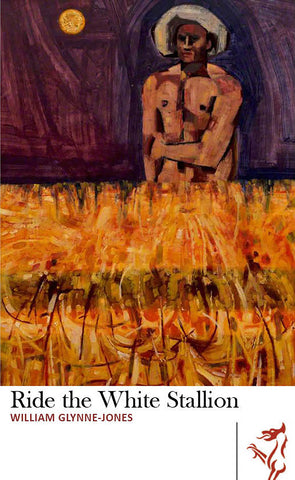"The foundry was working at full pressure. In spite of the dismal conditions - the stifling heat, the silica dust that hung in clouds in the air, the crude ventilation, and the strenuous labour - the men seemed happy and companionable. A certain measure of security had come at last after the long years of unemployment; the dread of the dole was behind them".
Life in the foundry is changing Ieuan Morgan, whose hands, once familiar only with the feel of books are now dark, knotted and fiercely strong. He dreams of writing and the day his young love Sally will come home from the convalescence home. When that day arrives Ieuan's life starts to feel complete and marriage only deepens that conviction. But much longed for success with his writing brings new temptations, when Stella Courtland, the sophisticated editor of a fashionable magazine enters the young man's life.
Ride the White Stallion is the sequel to Farewell Innocence, charting the trials and travails of Ieuan Morgan at the foundry and in his family life. It is an account of a young man's creative awakening amid the challenges of domestic penury and downright hard graft. A portrait of an industrial town as well as a convincing character study, Ride the White Stallionis shot through with truth and honesty, twin hallmarks of Glynne-Jones's work.
William Glynne-Jones (1907-1977) was a Welsh novelist, short story writer, broadcaster and journalist. He was born and grew up in Llanelli. When he was 16, he started working at the Glanmor Foundry as a steel foundry 'moulder', but was released at the age of 36 on medical grounds. Soon, he moved to London with his family and started his career as a writer. Many of his works have been published, including four novels, several children's books and short story anthologies.

